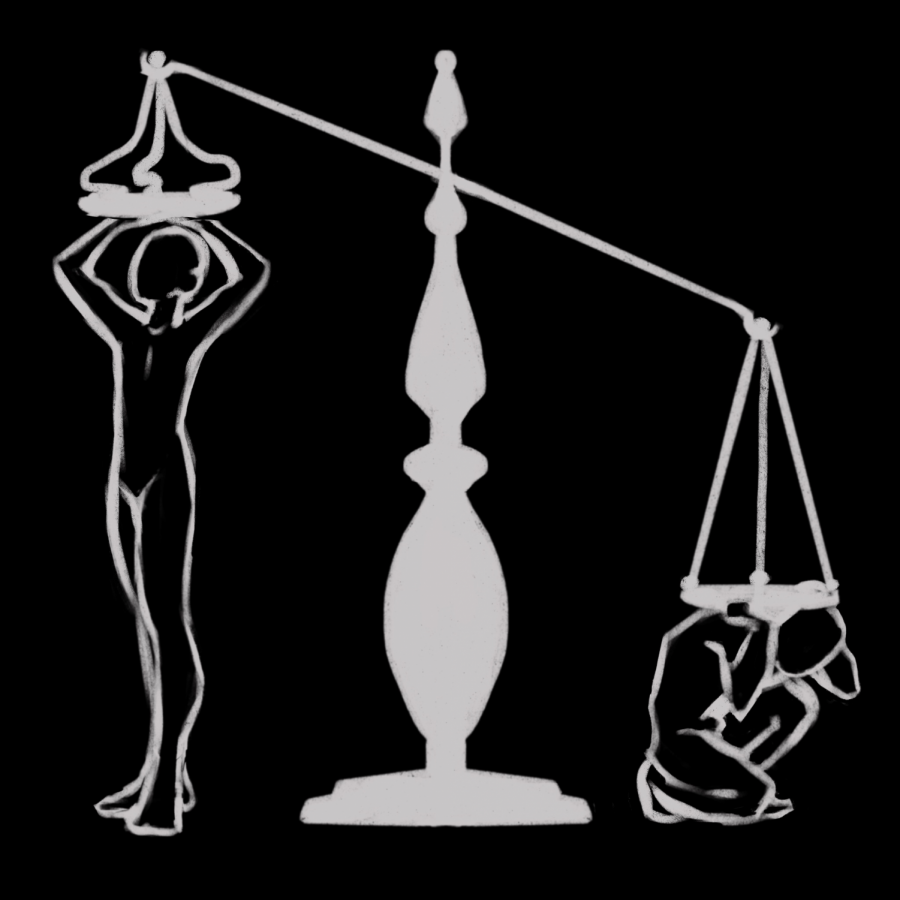The Death Penalty Has No Place in the American Justice System
Out of the ten states with the highest murder rates, seven still practice the death penalty.
September 30, 2020
Some laws and practices are important to maintain, as they help make and shape our democracy and hold traditions. However, practicing the death penalty is not a tradition that our country should keep any longer.
Punishment by death has been practiced in loads of countries for as long as civilization has existed. Hammurabi’s Code popularized this method of discipline in 1750 B.C.E. by introducing the concept of an “eye for an eye” justice system.
Another famous use of punishment by death is the public executions that took place in the French estates in the late 1700s, when lower-class citizens used the guillotine contraption to execute unethical and crude members of high society.
Both of these historical periods are often taught in school and bring a sense of shock to students’ minds, as the extreme use of legal murder sounds too crazy to be true. While the U.S. practices more toned down and slightly less gruesome methods of execution, the difference 300 years have made is not enough.
The debate around whether or not the death penalty should be used has been and still is a prevalent issue among Americans. Not only is the practice of capital punishment unethical, but there are several other reasons that the death penalty should be abolished — for example, it does not actually make positive changes to the country’s crime rate or the overall safety of citizens.
In 2018, Texas had the second-highest murder count out of all 50 states. Out of the ten states with the highest murder rates, seven still practice the death penalty, which suggests that the practice is not effective in deterring homicides.
The death penalty has also been accused by many of being a practice that discriminates based on race. “In a state that is only 6% black, more than one-third of defendants sentenced to death in California are black,” Jennifer Eberhardt said, a psychologist specializing in race inequalities in an interview with Los Angeles Times.
Another factor that must be considered when questioning the effectiveness of the death penalty is the financial advantage present in courtrooms all across the country. Racial minorities statistically make up most of the impoverished population in the U.S., and as the ability to obtain strong legal representation directly depends on an individual’s financial situation, this leaves people in poverty, particularly those who are minorities, with an automatic disadvantage when facing punishment by death.
In 2004, Cameron Todd Willingham was executed on death row in Texas for the killing of his three children in a house fire that was found to be arson. Five years after his execution, the Texas justice system reexamined his case and was unable to find convincing proof that the fire was actually caused by arson.
Willingham’s case is one among several others who have been wrongfully executed in the United States. This rare but real possibility causes innocent people to lose their lives with no chance of reversing the punishment.
Looking deeper than statistics and graphs, the effect of capital punishment on the people in our country is so much heavier than any line on a graph could show. I believe that when people decide to vote on laws or show their support for a certain view, they should make that decision with everybody involved in mind.
Life is something that a lot of people take for granted and ending somebody’s isn’t fair to those who work every day to save it for others. Doctors and first responders fight to save lives and people fight illnesses that could kill them at any moment. So, to take that away from anybody, I believe, is disrespectful to those who fight so hard for their own lives or to save the lives of others.
Some might argue that people who kill others and inflict harm to groups of innocent people need to be punished; even if this is true, why not let them be punished with a prison sentence? I am a strong believer that people can always grow and change. Even if they don’t seize the opportunity to improve themselves, it’s not our place to take that chance away from them.
With all of the violence and injustice in our country, there is no debate that an effective and sustainable punishment for the mistreatment of others needs to be sorted out. While there is no current solution that is ready to be implemented, using murder to fight murder is not a necessary or ethical option.






Ryan Darmody • Oct 1, 2020 at 8:17 am
BRAVA! A well-written, important point of view!
Avery Eldon • Sep 30, 2020 at 11:08 pm
So powerful and so proud!!!